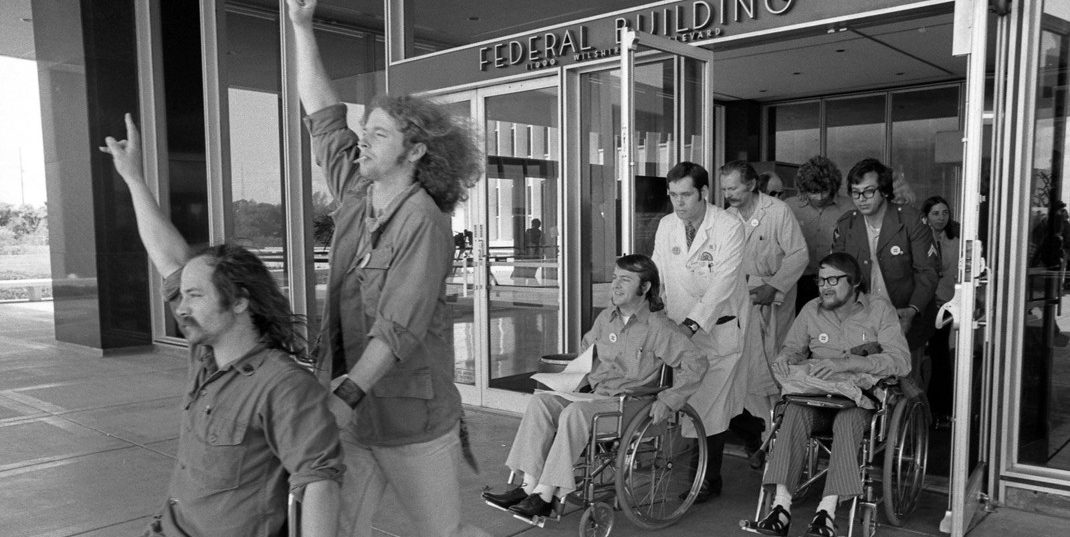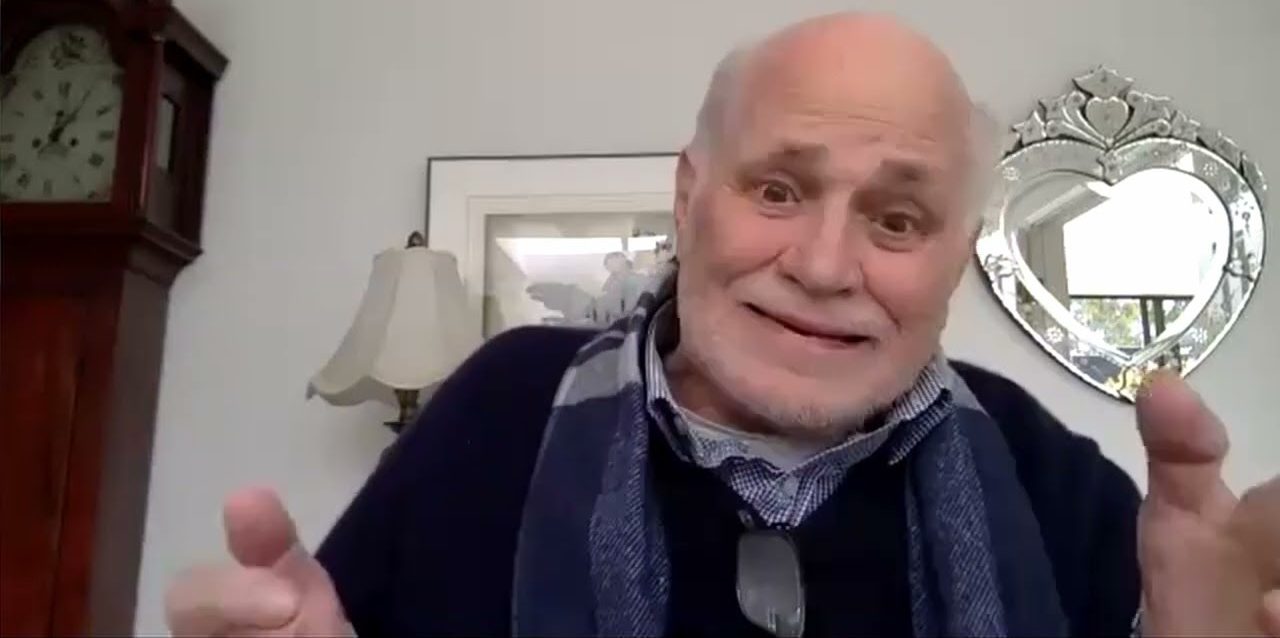A Marine Corps soldier turned anti-war activist, Ron Kovic’s story is as haunting as it is inspirational. As such, it should come as no surprise that his 1976 autobiography, ‘Born on the Fourth of July,’ and its subsequent film adaptation of the same name, would resonate with the audience. The veteran’s very existence is a reminder that some wounds, physical and otherwise, do not heal and that the only way to avoid them is to prevent crises as a whole. With war being the dominant force of his lifetime, Kovic has dedicated his efforts towards resisting it, hoping that his words and actions would reach far and wide and bring the public’s power over their government to the forefront. In the decades following the Vietnam War, its effects linger, with fresh wounds waiting to appear, making his campaigns more relevant than ever. SPOILERS AHEAD.
Ron Kovic’s Time in Vietnam Changed His Perspective on War
Born on July 4, 1946, Ron Kovic’s early childhood was shaped by the aftermath of World War II, with him considering service in the military to be the ultimate show of valor and worth to the nation. With these ideas in mind, he would enlist in the Marine Corps, describing the process as chillingly patriotic. However, his two tours to Vietnam would lead to a devastating turn of affairs. During the war, he accidentally shot and killed a fellow soldier and, shortly after, participated in a misjudged strike directed toward a village full of innocent Vietnamese civilians, killing most of them. Desperate to flee from his guilt, Kovic pushed himself deeper into enemy territories, hoping to kill an actual enemy and earn his medals. However, this only resulted in further tragedy, as he incurred serious wounds during the battle and lost control of his lower body.

Upon being paralyzed, Kovic spent the next few months in the New York Veterans Administration Hospital and found it to be severely understaffed, unhygienic, and lacking basic medical equipment. His return home provided little alleviation, and he found himself guilt-ridden and traumatized. The realization that war was nothing like it was advertised led Kovic to a path of questioning the established narrative, and soon enough, he started participating in student protests, beginning with the peace demonstrations against the Kent State shootings in May 1970. Soon, he would begin actively fighting against the government’s anti-humanitarian pursuits, particularly drafting. This led to his arrest, first among many, during the 1971 protests in Orange County, California. However, this did not deter Kovic, whose involvement only increased over the years.
Ron Kovic Became a Champion of Anti-War Activism
Kovic’s address at the Democratic National Convention held on July 15, 1976, at Madison Square in New York, was a major breakthrough in his rally against war. During his speech, which reportedly stunned the delegates into total silence, following a resounding standing ovation, he seconded the presidential nomination of Fritz Efaw, who had returned to the country after seven years of exile and was a staunch resister of the draft. While Jimmy Carter became the president the following year, Kovic and Efaw’s shared campaign put enough pressure on the government to declare unconditional amnesty to resisters following the war in Vietnam. Previously, he had led a group of fellow veterans on a 17-day hunger strike regarding the poor conditions of Veterans’ hospitals. The strikes ended with the resignation of the head of the Department of Veterans Affairs, Donald Johnson.

In 1976, Kovic published his autobiography, in which he detailed his childhood aspirations to be of service to the nation and how the Vietnam War steadily disillusioned him. He described in great length the horrors he had to endure on the battlefield and how they left a lasting impact long after the fight was over. He would soon collaborate with director Oliver Stone, who was eager to adapt the narrative as part of his series of films on Vietnam. While the project kept facing production-related issues for a few years, it was eventually greenlit, with Tom Cruise playing the role of Kovic. The two would go on to share a deep bond, with Kovic gifting the actor with the Bronze Star he had received for his services. The movie was a critical and commercial success and earned Kovic an Oscar nomination, along with Stone, for best screenplay.
Realizing that his methods were a success, Kovic went on to organize several strikes, protests, and public campaigns, targeting different facets of the war and its consequences. In 1990, he even considered running for a seat in the House of Representatives from California, which had the potential to give him unprecedented political control. However, he ultimately changed his mind, choosing to continue his efforts from the grassroots level. In the following years, Kovic had to bear witness to the beginning of another war, this time with Iraq. As a result, he participated in protests extensively, critiquing the country’s operations and, particularly, their continued mistreatment of army veterans. In May 1999, Kovic met with China’s ambassador to the US and presented him with twelve red crosses.
Ron Kovic Hasn’t Stopped Fighting For the Cause
Since the 2000s, Kovic has only expanded his anti-war efforts. In 2008, he went on to draw attention to another Democratic National Convention, this time in Denver, Colorado, where he rallied several Iraq War Veterans, along with thousands of people, to march against the war. While they were reportedly met by aggressive police suppression, which included several veterans being pepper-sprayed and arrested, the march ended in a success, with protestors establishing communications with the staff of Barack Obama, who was at that time running his presidential campaign. In a stirring speech, Kovic commended the public’s ability to hold the government accountable, with his final words being, “In the city of Denver, we got welcomed home.”

Through the years, Kovic has formed a stronger bond with the public and ventured into new projects with the fire of his mission still burning bright. In his 2005 foreword to ‘Born on the Fourth of July,’ he emphasized the urgency he felt in making people understand and know what he had experienced. He has extended his journey as a writer, having penned many more books, such as 1984’s ‘Around The World in Eight Days’ and 2016’s ‘Hurricane Street.’ He featured in a video on September 28, 2024 wherein he reflected on his experience of being an author and also talked about his book ‘A Dangerous Country: An American Elegy,’ published in 2024, completing the Vietnam Trilogy. The book continues his efforts to raise awareness about the true horrors of war.
Most recently, in April 2025, Ron Kovic appeared as a guest speaker at Redondo Beach Library, where he recalled his memories of war and addressed the need to find an alternative to war practices. At 78 years old as of 2025, he continues to be a prominent leader of humanitarian causes, inspiring generations of activism and strong moral fiber. His work has brought together the industries of film, literature, and war during this arduous journey. The veteran lives in Redondo Beach, California, receiving healthcare from the Long Beach Veterans Affairs facility, and reported spending his time writing, painting, playing the piano, and gardening. While the war took away his ability to walk, he nonetheless managed to reach the hearts and minds of thousands of people across the world.
Read More: Is Villa Dulce a Real Mexican Haven?


